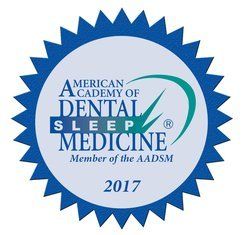What is Sleep Apnea?
Are you having difficulty sleeping, waking your partner up with constant snoring, or suffering from headaches every day?
You could have a breathing disorder known as sleep apnea. Apnea prevents your body from getting the oxygen that it needs while you’re sleeping, either due to obstruction of the airway itself or due to an underlying medical condition.
If you’re struggling to get a good night’s rest, it’s time to ask if sleep apnea is a possible cause. The first step is seeing a sleep specialist to find the relief you desperately deserve.

What puts you at risk for sleep apnea?
Risk factors for sleep apnea vary from one person to the next. While weight may be an issue for one person, jaw anatomy will be the cause in another. If you’re having trouble sleeping— along with any of the following conditions/factors — then a sleeping disorder may be to blame.
Risk factors for sleep apnea include:
• Weight gain
• Smoking
• Airway disease
• Oral and jaw anatomy that restricts the airway (such as excess tissue)
• Cardiovascular disease
Sleep Apnea Causes and Symptoms
Sleeping disorders are often related to other underlying health or anatomical issues, resulting in poor breathing or collapse of the airway when you sleep.
Certain types of sleeping disorders, such as obstructive sleep apnea (OSA) are due to anatomical obstruction of your airway while soft tissues at the back of your mouth collapse against the throat. This can be an inherited risk factor or due to something like weight gain. It may be a condition that’s developed over time, even if it wasn’t a problem during childhood.
Most people will tell you that the signs of sleep apnea and sleep disorders involve chronic snoring and when you have difficulty sleeping through the night. While you may not be aware of all the symptoms, your family and/or roommates likely will.
Other signs and symptoms of obstructive sleep apnea include:
- Depression or irritability
- Large neck circumference
- TMJ disorder/TMD or jaw pain
- Drowsiness and daytime fatigue
- Migraines, headaches
- Weight gain
- Cardiovascular disease
- Gasping for breath or an extended pause in breathing *
*ask your sleep partner
While managing underlying health concerns may improve your lifestyle, they will not treat the sleep apnea causes that are contributing to them. You should talk to a sleep physician or healthcare provider immediately if you suspect that a sleep disorder may be to blame for your condition; it could save your life!
Take the first step toward sleep apnea relief and schedule a sleep apnea screening with your physician today. If you have already been diagnosed with sleep apnea and need an alternative to CPAP, or if you need help figuring out where to start, please contact a sleep apnea specialist like Dr. Phillips.
Treatment Options for Sleep Apnea
The sleep apnea treatment you receive can vary from CPAP equipment, an oral appliance for sleep apnea, combination therapy, or surgery. Finding the one that works best for you can help to improve your sleep quality, reduce sleep apnea symptoms and even improve your mood, as you’ll wake more refreshed the next day!
For the longest time, most pulmonologists and physicians moved immediately toward positive airway pressure devices (CPAP) as the primary treatment. But now we now know for patients with mild to moderate sleep apnea diagnosis less-invasive oral appliances can offer results equally as effective as CPAP while being more comfortable to wear for most sleep apnea sufferers.
Based on her experience specializing in the treatment of sleep apnea, Dr. Phillips will work closely with you to find the best treatment for your sleep apnea symptoms.
Answering Your Sleep Apnea Related Questions
-
What exactly is obstructive sleep apnea (OSA)?
OSA is a sleep disorder where breathing repeatedly stops and starts during sleep, up to as many as 30 times or more per hour. This is usually caused when the soft tissue in the back of the throat collapses or narrows and blocks the upper airway. When this occurs, your brain, sensing impaired breathing, momentarily rouses you from sleep to reopen your airway.
-
Is obstructive sleep apnea dangerous?
OSA is dangerous and can be life threatening. OSA is tied to a host of chronic health conditions, including underlying coronary disease and cardiovascular risk factors such as diabetes, hypertension, and heart failure.
-
Is sleep apnea a disability?
The U.S. Social Security Administration does not have a separate disability listing for sleep apnea. You may be eligible for SSA disability if chronic OSA has directly led to severe health problems and complications. U.S. military veterans should contact the Veteran’s Administration about possible OSA disability benefits.
-
How can I get tested for obstructive sleep apnea?
Polysomnography is the gold standard test for OSA. This test is typically conducted in a sleep lab, overnight, or a take-home option may be available in some circumstances. Results are read by a medical expert to determine if you have OSA.
-
Can obstructive sleep apnea cause weight gain?
Untreated or undertreated OSA can cause weight gain, further complicating the complex obesity-OSA link. It can impact hormone levels that affect appetite, causing you to eat more. Additionally, fatigue and daytime sleepiness due to OSA may cause you to consume high-calorie, sugary foods for a brief boost in alertness and energy.
-
Can babies suffer from obstructive sleep apnea?
The prevalence of OSA in infants is unknown. Infant OSA may “occur due to obstructive sleep apnea, infections (pneumonia, croup), vocal cord paralysis, and congenital upper airway anomalies.”
-
Why am I so sleepy all of the time?
The constant waking cycles caused by sleep apnea may go unnoticed through the night, but the daytime fatigue and drowsiness are a symptom that’s hard to miss.
-
Can sleep apnea “go away” by itself?
Sleeping disorders require professional care from a licensed health expert. While symptoms may improve with weight loss and exercise, most types of sleeping disorders cannot improve on their own.
-
Is sleep apnea hereditary?
Because obstructive sleep apnea (OSA) is due to anatomical relationships of soft tissues at the back of your throat, you may find that you’ve “inherited” it from a parent with the same condition.
-
Can you die from sleep apnea?
The physical effects of sleep apnea include drowsiness, fatigue, high blood pressure, and cardiovascular health conditions, all of which can lead to life-threatening events such as car accidents or heart attacks.
-
How do I get diagnosed with sleep apnea?
The only way to diagnose sleep apnea is with a sleep study where the results are read by a medical expert to determine if you have a sleeping disorder. Most sleep labs offer both in-lab, overnight sleep studies and take-home sleep study options. To determine which option is right for you, talk to your sleep physician or contact our office in the Woodlands and we can help steer you in the right direction based on your symptoms.
More Sleep Apnea Related Information
REstore TMJ & Sleep Therapy P.A.
1001 Medical Plaza Drive,
Suite 200 | The Woodlands, TX 77380
281-296-6797
Dr. Phillips serves TMJ & Sleep patients in: The Woodlands TX | Spring TX | Conroe TX Tomball TX | Cypress, TX | Houston, TX | Kingwood TX | Humble, TX | Katy TX
© 2023 by REstore TMJ & Sleep Therapy | Terms Of Service & Privacy Policy | XML Sitemap
-2700x842-1920w.png)






